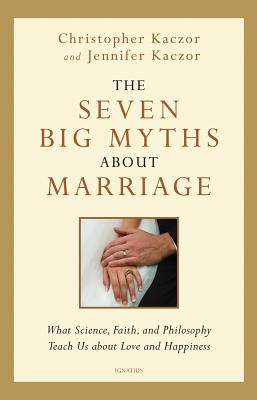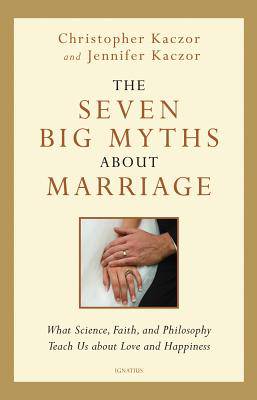
- Retrait gratuit dans votre magasin Club
- 7.000.000 titres dans notre catalogue
- Payer en toute sécurité
- Toujours un magasin près de chez vous
- Retrait gratuit dans votre magasin Club
- 7.000.0000 titres dans notre catalogue
- Payer en toute sécurité
- Toujours un magasin près de chez vous
The Seven Big Myths about Marriage
What Science, Faith and Philosophy Teach Us about Love and Happiness
Christopher Kaczor, Jennifer KaczorDescription
This work explores some of the most interesting and vexing problems in contemporary life. Appealing to reason rather than religious authority, the book tackles the most controversial and talked about positions of the Catholic Church - on contraception, on marriage, on reproductive technologies, on cohabitation, and on divorce - arguing for the reasonableness of the Church's views on these issues.
The book's interdisciplinary approach, following the precedent of Thomas Aquinas, looks to human happiness and fulfillment, properly understood, in seeking the answers to questions about how to live. It aims to show to skeptical readers that what the Catholic Church teaches about controversial issues is rationally justified by considering evidence from psychology, sociology, and philosophy.
The foundation of Kaczor's approach is happiness. We all want to be happy. Every day, in whatever we do, we seek this goal. But what exactly is happiness? And how can we find it? The saints and psychologists agree: there can be no real happiness without authentic love-erotic love, friendship love, and self-giving love (agape).
From this foundation of happiness Kaczor explores the nature of marriage, and the love they promise to each other, which is agape, a self-giving love that is the choice to do good for the other. He also examines alternatives to covenant marriage, such as polygamy and same-sex marriage, as well as cohabitation.
Finally the book explores the value of children. To make sense of Catholic teaching on contraception, he says that we must first reconsider the value of fertility and having children. Only in this perspective, can one begin to understand what the Church teaches.
Spécifications
Parties prenantes
- Auteur(s) :
- Editeur:
Contenu
- Nombre de pages :
- 207
- Langue:
- Anglais
Caractéristiques
- EAN:
- 9781586178437
- Date de parution :
- 13-02-14
- Format:
- Livre relié
- Format numérique:
- Genaaid
- Dimensions :
- 142 mm x 206 mm
- Poids :
- 385 g

Les avis
Nous publions uniquement les avis qui respectent les conditions requises. Consultez nos conditions pour les avis.






